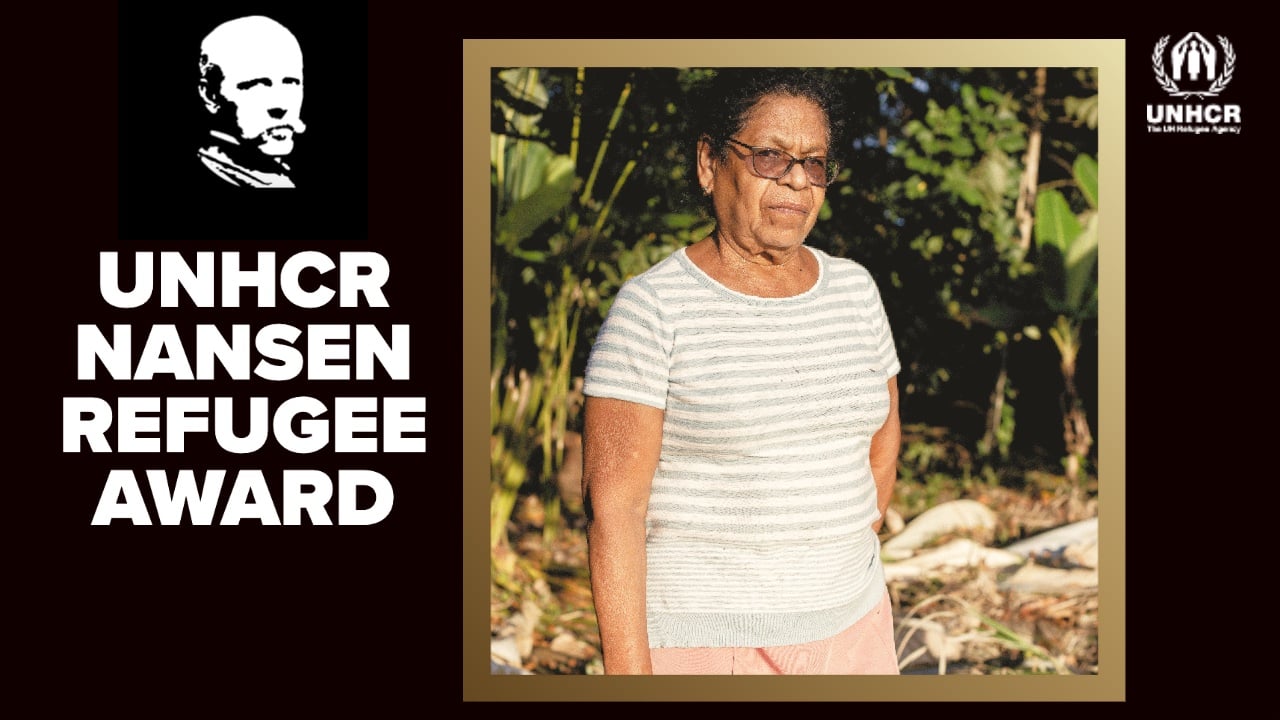Fishing for a living in the desert wastes of northern Kenya
Fishing for a living in the desert wastes of northern Kenya

KAKUMA REFUGEE CAMP, Kenya, October 22 (UNHCR) - Noah Ilambona has been a fisherman all his life, so the refugee from Burundi felt completely lost when he ended up in the arid reaches of north-west Kenya after fleeing home in 2010 with his wife and first child.
"I was happy to have found safety. The fighting was terrible back home," admitted the 30-year-old, who fled to Kakuma Refugee Camp from his village on the banks of Mulembwe River, which feeds into Lake Tanganyika.
But the environment in north-west Kenya was completely different from his lush village and the father of two got a shock on arrival in Kakuma, which is located in a mostly arid region that experiences searing temperatures and very little rainfall. The locals are pastoralists who live a nomadic lifestyle in constant search of water and pasture for their livestock.
Noah was not sure what to do - fishing was all he knew, but this seemed impossible in his new home. "I felt like giving up but I knew that I had to try my best and build a new life here," he says. Most of his Burundian neighbours relied on assistance from UNHCR and other agencies and they thought Noah had been in the sun too long when he unveiled plans to start a fish farm.
"Everyone thought I had gone mad," Noah said, laughing. "But I was determined to continue with what I knew best." He dug a small pit behind his house and filled it with water and then sought out a local businessman who transports fish from the town of Lodwar, which is located near Lake Turkana, the world's largest desert lake.
The businessman brought him three juvenile fish, or fingerlings, which Noah placed in the pond. He would feed them with bits and pieces of leftover food and, within a month, the fingerlings had doubled in size.
News of Noah's "crazy" venture spread like bushfire across the Burundian community and he became the talk of the camp. A neighbour convinced him to present his idea to UNHCR as a possible livelihood project. Mary Flomo-Hall, UNHCR's community services officer in Kakuma, was intrigued when she heard of Noah's project.
Together with a field officer from the National Council of Churches of Kenya (NCCK), she went to Noah's house. "We are always looking out for innovative and refreshing ideas that can have a direct impact on refugees' lives," she said. "So when I saw what Noah had done I was completely amazed."
Impressed by his innovative venture and determination, UNHCR agreed to help through NCCK, which manages some livelihood projects in the camp. Noah was given 400 fingerlings and space at the NCCK livelihoods centre to start a proper fish pond. Now, eight months later, the entrepreneur has set up two more ponds in partnership with 13 other Burundians.
The group supplies 30 to 40 kilogrammes of fish every three months to the camp. "The fish is in such high demand that we run out after three days," Noah revealed, adding that they made up to 15,000 shillings (US$700) every three months from the project. "Nobody ever believed that I would make it this far and I am grateful to UNHCR for believing in me," the proud Burundian fisherman said.
Noah is conscious of his luck; not many refugees are able to earn an income from a trade they are skilled at. He is happy that he can continue fishing, although in a different way to back home.
He now hopes that he and his partners can find the resources to expand the project as there is huge demand for fish in the area. The nearest source is Lake Turkana, which lies almost 200 kilometres away. "I now have a bright future and I can take care of my family without worrying," Noah said. "My fish have brought me happiness again."
By Cathy Wachiaya in Kakuma Refugee Camp, Kenya








